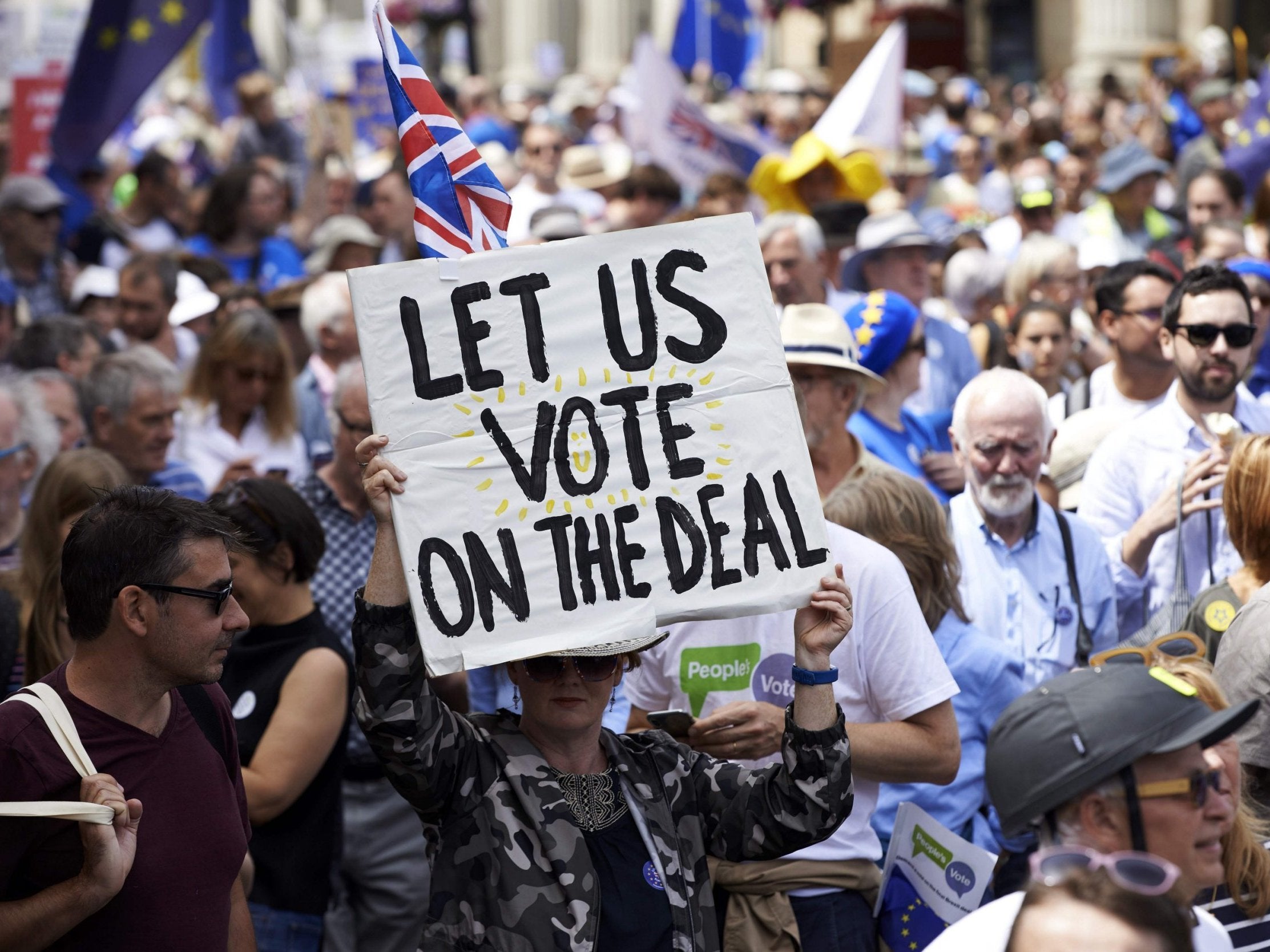Brexit: Would extending Article 50 make a second EU referendum more likely?
There is much debate about the possible extension of Brexit negotiations but, says Jon Stone, it remains to be seen whether more talking will lead to a different outcome


UK government officials in Brussels have reportedly been exploring how an extension of Article 50 might work.
Such an extension would be key to a second referendum: here’s why.
What does extending Article 50 mean?
In March 2017 Theresa May formally notified the EU that the Britain wanted to leave, as laid out under Article 50 of the Lisbon Treaty.
This started the so called “Article 50 process” – a two year time-limited period during which a withdrawal agreement would be negotiated.
That period is nearly up, and will expire on 29 March 2019. But with the Brexit process having descended into chaos, the prospect of an extension to the period is now being talked about, including among ministers and UK officials.
How can Article 50 be extended?
An extension of Article 50 would require two things: firstly, the UK would have to ask for one. Secondly, the other 27 EU countries would have to unanimously agree to it.
There is no formal limit on the deadline extension, though the EU has previously suggested that it would not grant an indefinite prolongation.
How is this relevant to a second referendum?
Referendums take quite a bit of time to organise – the Electoral Commission recommends that “referendum legislation should be clear at least six months before it is required to be implemented”, though it could probably be done more quickly than that.
Either way, with the clock running down, a second referendum would effectively require an extension (or revocation) of Article 50.
Nevertheless, the path to a second referendum depends on the politics of the issue and who supports one.
Would the EU grant an extension?
The EU has mostly refused to discuss the hypothetical question of an extension. Some countries, including Ireland, have said they would not stand in the way, but that it is for the UK to ask for one. The UK government has said it does not want one and that its policy is to leave on 29 March.
Behind the scenes, EU officials believe a short extension could be possible, but that it should not go beyond May, when the next European parliament elections are due to be called.

The UK would, by law, have to participate in these elections unless it had departed the EU beforehand.
Officials are wary of the idea of granting an extension for no reason, or just to buy the UK time, if there is no prospect of further process – they believe there should be a reason behind it.
Holding a referendum would probably be an acceptable reason, though it is impossible to know for sure what will happen until the UK government actually asks the question.
Got an unanswered question about Brexit? Send it to editor@independent.co.uk and we’ll do our best to supply an answer in our Brexit Explained series
Join our commenting forum
Join thought-provoking conversations, follow other Independent readers and see their replies
Comments
Bookmark popover
Removed from bookmarks